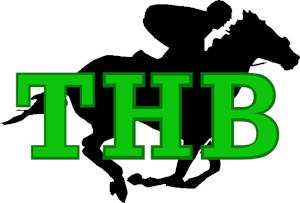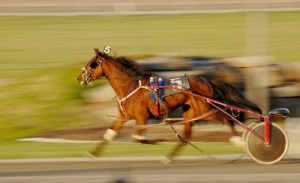Harness Racing Payouts: An Overview
Harness racers are always enthusiastic about the potential rewards from their events. Harness racing payouts vary, depending on wager type (exacta, trifecta, superfecta or win bets) and the number of winning horses picked.
Here’s a summary of Harness Racing Payouts:
| Wager Type | Winning Horses Picked | Minimum Payout | Maximum Payout |
|---|---|---|---|
| Exacta | 2 | $5.00 | $1,000.00 |
| Trifecta | 3 | $10.00 | $20,000.00 |
| Superfecta | 4 | $0.10 | $50,000.00 |
| Win Bets | 1 | Varies | Depends |
Location, race grades and prize pool also affect the payout amount.
To better understand the amount of payout a harness race offers, let’s delve into the factors that impact payouts with a focus on track size and location, purse size and structure, number of horses in the race, and betting activity.
NOTE: If you’d like to learn more about how harness racing bets work read this article >
Factors that Impact Payouts
Track Size and Location
The size and position of the course really matter when it comes to payouts. Depending on the track’s location and size, the prize money will be different. For instance, a small track in Miami may offer $10,000, while a larger track in Las Vegas may offer $25,000, and even more in Dubai.
Apart from size and location, other factors also have an influence on payouts. These include sponsorships, ticket sales and the number of participants.
In order to make the most of payouts with smaller tracks, organizers might opt for higher entry fees or lower-priced merchandise with higher-profit margins. For events at larger tracks with more competitors, sponsorship deals can get more money and add to the prize money.
So, size and location do play a part in maximizing payouts. But, there are other measures to ensure revenue goals are met. Bigger prize money doesn’t always mean bigger payouts, but it does give you a comfier seat cushion when playing poker for a long time!
Purse Size and Structure
Money and structure are vital components that affect payouts. To have the greatest chance of big earnings, contestants must focus on Purse Size.
To increase chances of receiving a prize, participants should look at rewards provided by an event and the total reward money. Redistributing prize money can lead to potential savings.
Also consider if large organizations may offer additional bonuses to create publicity around certain competitions.
Pro Tip: Calculate the ratio of prize distribution to total prizes to figure out if entering would be profitable or not. More competitors in the race means more competition for the top spot, but there’s also a better chance of one of them tripping mid-run… That’s just horse sense.
Number of Horses in the Race
Competing horses can hugely affect payouts in the horse-racing industry. More horses = higher odds and winnings. But it also decreases chances of any one horse winning.
Here’s a table showing how payouts go up with more horses:
| Number of Horses | Average Payout |
|---|---|
| 4 | $10.00 |
| 6 | $14.00 |
| 8 | $18.00 |
| 10 | $25.00 |
| 12 | $30.00 |
Bigger races can be more profitable, but way harder to predict. Bottom line: it’s still a gamble.
Betting Activity
To get the biggest payouts, it’s important to look at customers’ betting behaviors. These patterns have a big effect on what they get back from a bookmaker. Let’s explore which betting activities can influence payouts.
Here’s a table showing these elements:
| Betting Activity | Factors Influencing Payouts |
|---|---|
| Bet Type | What kind of bet (e.g., straight, teaser, parlay, futures) |
| Bet Amount | How much wagered on each bet |
| Odds | Bookmaker’s odds at the time of the bet |
| Time & Frequency | Betting frequency & time of day |
| Betting Markets | Markets available for betting (sports, politics, etc.) |
For example, odds can change due to market news or injuries. This could lead to drift if too many people back one outcome in what should be an even match.
Pro Tip: Knowing how betting behavior affects payouts helps you take a more sophisticated approach to wagering. Analysts should go beyond basic stats and survey-based research.
Understanding the Different Types of Harness Racing Wagers
This section will explain Win, Place, and Show Bets, Exacta, Trifecta, and Superfecta Bets, as well as Pick 3, Pick 4, and Pick 6 Bets.
Win, Place, and Show Bets
For wagering on Harness Racing events, there are many types of bets. One of these is the Podium Betting type. It includes selecting a horse for the Win, Place, and Show positions.
A table explains the specifics of each position and payout:
| Bet Type | Definition | Payout |
|---|---|---|
| Win Bet | Horse to Finish 1st | High Payout |
| Place Bet | Horse to Finish 2nd or 1st | Medium Payout |
| Show Bet | Horse to Finish 3rd or 2nd | Low Payout |
Podium Betting has been part of the Harness Racing sport for over a century. It gives fans and gamblers the chance to have fun with their favorite horses. Over time, more betting variations have been added. These offer bigger payouts or more challenging levels, depending on your preference.
Exacta, Trifecta, and Superfecta Bets
The table below shows higher-odds wagers and their payouts in harness racing.
| Wager | Payouts |
|---|---|
| Exacta | pays $10-$100+ |
| Trifecta | offers $50-$1,000+ |
| Superfecta | can give you $500-$10,000+ |
These bets can also be made as boxes or wheels, for higher payouts. E.g., with an exacta box bet, you only need two horses to finish 1st and 2nd, no matter the order.
For those willing to research and keep up with trends and data, these bets can be rewarding. Some racetracks even offer special jackpots or bonuses for predicting certain wager combinations.
A friend of mine once won big on superfecta! He placed trifecta box wager on his favorite horses, then added one random horse. All four finished in the sequence he picked – he was stunned! $14k winnings – a day he’ll never forget! Why settle for one horse when you can pick more and raise the stakes?
Pick 3, Pick 4, and Pick 6 Bets
Harness racing wagers come in various forms. Pick 3, Pick 4, and Pick 6 combinations are popular choices. Here’s a breakdown:
- Pick 3: Three races. Minimum bet: $1.
- Pick 4: Four races. Minimum bet: $1.
- Pick 6: Six races. Minimum bet: $2.
These bets require predicting winners of each race in the combination.
Some bettors like small individual wagers on many races. Others prefer this more comprehensive, challenging betting style. Research and weigh risks versus rewards before committing.
A notable win happened at California’s Santa Anita Park in February 2019. An anonymous bettor won $1.5 million from a $128 wager on six consecutive races!
Sample Harness Racing Payouts
To understand the payout ranges, here is a brief introduction to the payout rates of harness horse races. This gives you a good idea of what you can expect to win.
Examples of Low-Payout Races
But some harness races have lower payouts for reasons like:
- Lower-ranked horses
- Fewer participants
- Less betting activity
- Smaller, less popular tracks
- Races at the start or end of the season
It’s still fun to watch, even if the payout is low. Real money can still be made when the odds are stacked.
Examples of High-Payout Races
Harness racing payouts with big returns are what professional bettors want.
Here are examples of high-payout harness races:
- High-stakes harness racing events
- Races with few clear favorites
- Bets taken in pools with few winners
- Races with higher odds
- Trifecta, Superfecta and other bets with large payouts for a few people
Weather, track firmness, and more, all influence the payouts. Predicting high-payout harness races takes time and research.
Maximizing Your Potential Payouts
To maximize your potential payouts in harness races, you need to invest time and effort into researching the horses, trainers, and drivers. This will help you identify the right betting strategy. Additionally, it’s important to set a realistic budget and manage your bet sizes avoid over-investing in the hopes of a larger payout.
Researching the Horses, Trainers, and Drivers
Exploring Competing Horses, Drivers and Trainers
Here are five points to remember:
- Investigate past performance records of both horse and trainer/driver
- Examine the present health state of the animal and its history
- Know the jockey/trainer/driver tactics, training methods and track record
- Analyze odds, payout ratios, and profits per start / race before placing any bets
Identifying the Right Betting Strategy
Optimizing betting earnings is a must. The right choices and moves can make a huge difference in your payouts. Here’s what you can do:
- Gain insights. Research market trends to understand what works best.
- Play safe. Strategically planned moves help avoid losses.
- Diversify. Experiment with different betting options.
- Maintain control. Don’t let emotions govern your gameplay.
Execute these steps, and you’ll be able to increase your earnings.
Common Questions
How is the purse split in harness racing?
60 percent of the prize money is normally awarded to the winner, 20 percent to the runner-up, 10 percent to the third place finisher, 5 percent to the fourth place finisher, and 2.5 percent to the fifth place finisher. Any horse that places sixth or below gets a portion of the remaining money.
What percentage do harness drivers get?
Drivers usually get 5% of the horse’s purse earnings as compensation. Many drivers get gratuities, and at certain races, they also receive a set minimum every drive.
How do you bet on harness racing?
The different harness racing bets are:
Win: If you placed a wager on the winning horse, you will be paid out.
Place: If you wager on the first- or second-place finisher, you will get place money.
Show: If you wager on the first, second, or third-place finisher, you will get show money.
Daily Double: Choose the winners of two consecutive races.
Conclusion
This video should help if you’re new to betting on harness races:
Related Tags
- harness racing purse distribution
- harness racing prize money
- harness racing payout

I am Lawrence (aka “The Horse Better”). I spent 20+ years in financial risk management where I ran large-scale statistical betting models in complex situations. I grew up around horses and I’ve been betting on horse races for about 10 years with good success. I hope my articles provide good value!

